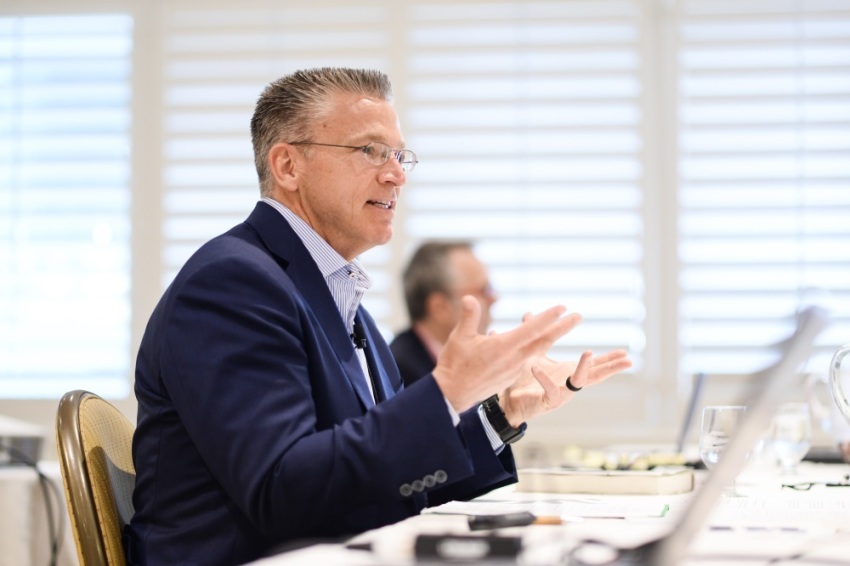One surprising reason the poor don't get justice in developing countries

MIAMI BEACH — Among the many reasons poor people have difficulty getting protection in the justice systems of developing countries, one surprising factor has gone largely unnoticed, International Justice Mission CEO Gary Haugen explained.
A "massively underreported and underdiscussed phenomenon" has hindered justice for the poor, Haugen told a group of journalists.
"Two words ... that keeps the thing completely hidden — private security."
Haugen was speaking about "Global Poverty and Injustice: Taking the Long View" at an April 1 Faith Angle Forum.
How can nations like India have high economic growth yet a dysfunctional justice system, Haugen asked rhetorically. How are large corporations able to operate in nations with high levels of violence?
"So in India, for example, the private security forces are four times larger than the public police force. In the developing world, private security forces are between five and seven times larger than the public police force. The largest employer on the continent of Africa now is private security. This suddenly makes us understand, oh, this is how this all stays below the radar and doesn't get better because the people of wealth and power have abandoned the public system," he said.
Haugen compared the situation to when wealthy people put their kids in private schools.
"It's sort of what happens to schools or transportation systems when the people of wealth and influence leave the public system. They don't even know that it's broken. They don't even know that it's not working," he said.
In advanced economies, Haugen explained, businesses invest in public justice systems. So most of their security comes from public law enforcement. But in the developing world, they invest in private security.
"So there are two tiers: a collection of people who can afford to move forward economically because they're safe in private security, then all those who cannot afford private security who are living in lawless chaos," he said.
Haugen has long worked to bring attention and solutions to the problem of broken justice systems for the poor through his work at IJM, speaking engagements, and a book, The Locust Effect: Why the End of Poverty Requires the End of Violence. The poor can't pull themselves out of poverty, he pointed out, when they aren't safe from violence and their property isn't protected.
In addition to private security, Haugen noted at the Faith Angle Forum that there are three other reasons the poor don't have functioning justice systems in developing nations: 1) these systems were first set up by colonial powers with the intent of protecting themselves, not the poor; 2) the powerful in these countries have a system that works for them and have no desire to change; and 3) development aid hasn't gone toward helping the justice systems in these countries.
Can this situation change?
Haugen said he is now "more hopeful and excited than I've been ever before."
With more attention now focused on the issue, governments and NGOs are working together to fix these problems.
"These very massive institutions are waking up to how unsustainable it is to actually make progress in these areas if you don't address the brokenness of basic justice systems," he said. "And so, I do think we have an opportunity because it's possible to actually fix broken criminal justice systems to protect half a billion people by 2030."
You can read a transcript of Haugen's remarks on the Faith Angle Forum website, or watch the video below.



























